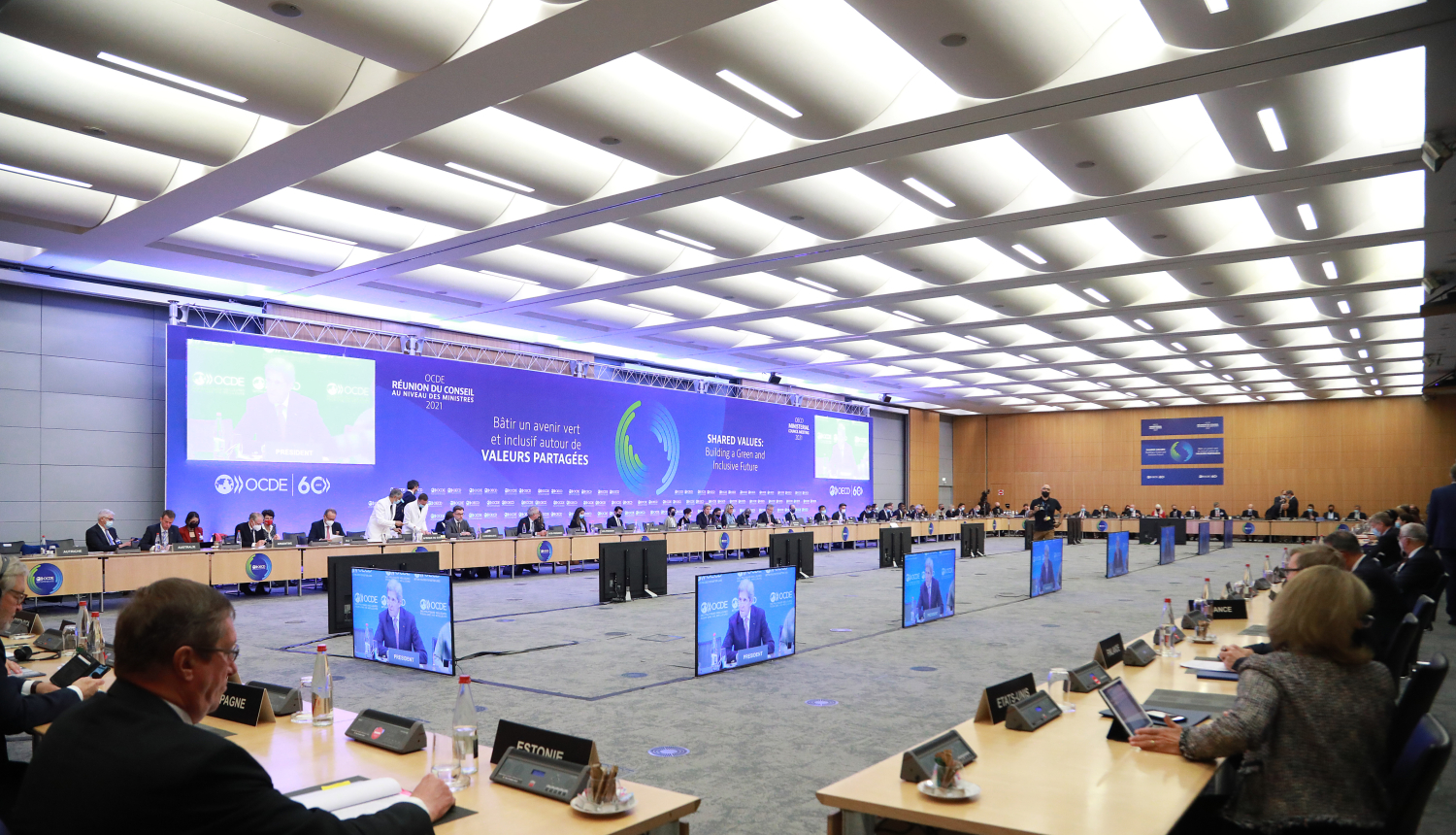Foto: OECD
On 6 October 2021 in Paris, the Minister of Foreign Affairs of Latvia, Edgars Rinkēvičs, took part in the Meeting of the Organisation for Economic Cooperation and Development (OECD) Council at Ministerial Level addressing international trade issues.
The Latvian Foreign Minister voiced an opinion that it is important to continue advocating the principles of an open and fair trade. An open and rules-based international trade has a major role to play in the fight against pandemic, Edgars Rinkēvičs pointed out. Regardless of that, under the cover of COVID-19 many countries have taken protectionist measures. For our economies to recover, a predictable, well-functioning and fair international trade system with the World Trade Organisation (WTO) at its core is more vital than ever. Therefore, our joint efforts should be aimed at a successful Twelfth WTO Ministerial Conference and the organisation’s reform, the Minister noted, adding that, as part of the reform process, a solution should be offered to industrial subsidies and overproduction.
Latvia also supports the work undertaken by the OECD to find proof to the distortive effect of state aid in certain countries. We hope that the OECD’s analysis by will be used to promote the WTO reform towards a more fair and effective multilateral trade, Edgars Rinkēvičs said.
At the meeting the ministers also shared opinions on challenges faced by the international trading system due to nonmarket practices. The ministers then reviewed the work by the OECD Trade Committee on government subsidies and other support measures and interventions that distort the market and result in overproduction.
Background information
The OECD has undertaken the identification and measuring of government support in a number of sectors, for instance, agriculture, fisheries, fossil fuels, and important value chains (those of aluminium and semiconductors).
The OECD has found that below-market financing (borrowings – government support for loans issued on conditions not related to market principles – and equity) are relatively widespread instruments of government support that help companies reduce capital costs. In addition, lack of predictability poses a major problem. Another matter of concern is related to government-invested firms, which not only are recipients of below-market financing on numerous occasions, they can also provide support on their own, namely, state-owned banks and government guidance funds. Thereby, the OECD points out that current trade rules are unable to deal with this kind of a government support issue.
The OECD report on distortions in aluminium value chain has revealed the amount of government support provided to aluminium producers through the debt channel (below-market borrowings). Similar conclusions can also be made concerning semiconductor value chains, where support is provided through the equity channel (below-market equity).




